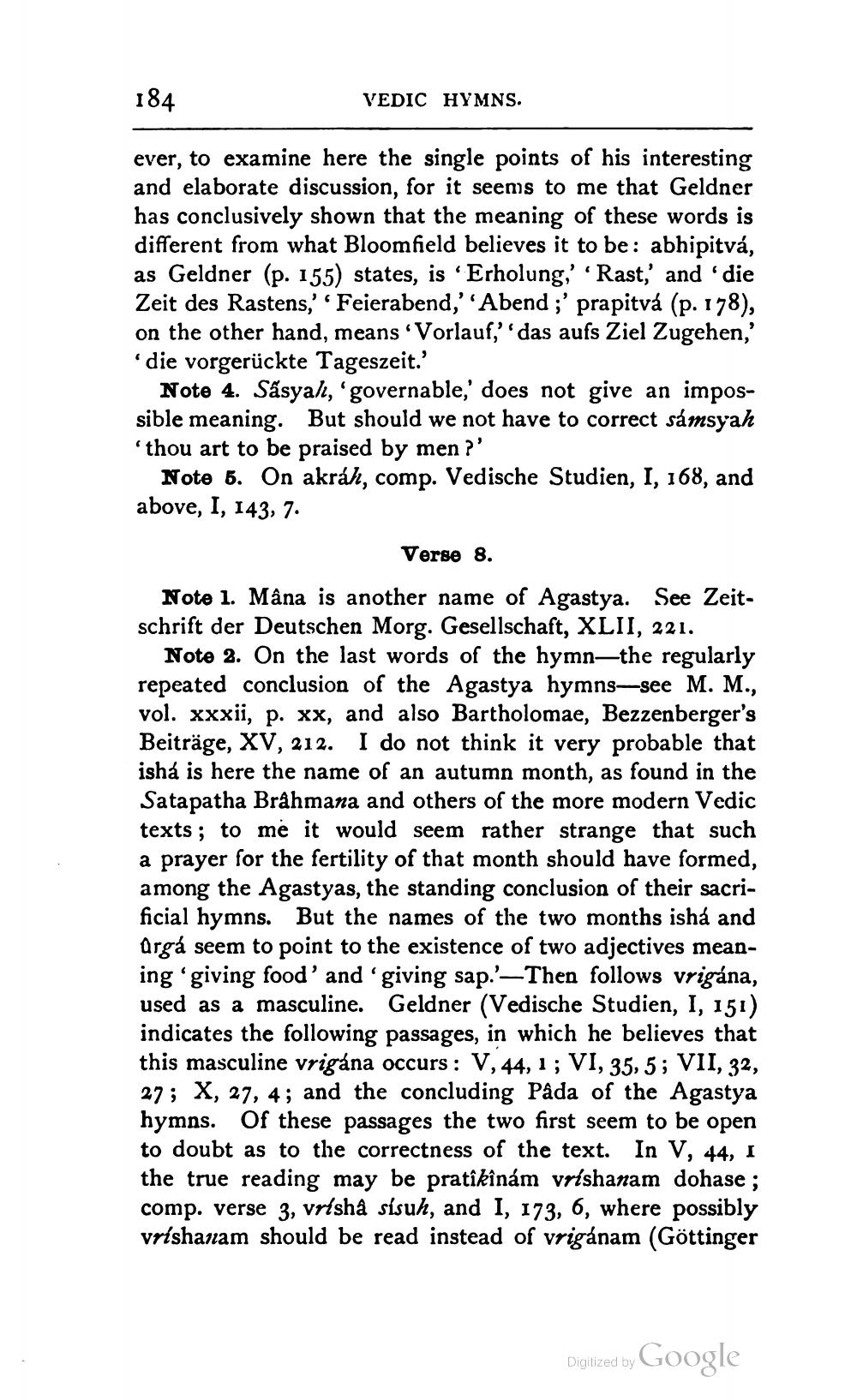________________
184
VEDIC HYMNS.
ever, to examine here the single points of his interesting and elaborate discussion, for it seems to me that Geldner has conclusively shown that the meaning of these words is different from what Bloomfield believes it to be: abhipitvá, as Geldner (p. 155) states, is 'Erholung,' Rast,' and 'die Zeit des Rastens,'' Feierabend,''Abend ;' prapitvá (p. 178), on the other hand, means 'Vorlauf, das aufs Ziel Zugehen,' die vorgerückte Tageszeit.'
Note 4. Sãsyah, governable,' does not give an impossible meaning. But should we not have to correct sámsyah 'thou art to be praised by men ?'
Note 5. On akráh, comp. Vedische Studien, I, 168, and above, I, 143, 7.
Verse 8.
Note 1. Mâna is another name of Agastya. See Zeitschrift der Deutschen Morg. Gesellschaft, XLII, 221.
Note 2. On the last words of the hymn—the regularly repeated conclusion of the Agastya hymns-see M. M., vol. xxxii, p. xx, and also Bartholomae, Bezzenberger's Beiträge, XV, 212. I do not think it very probable that isha is here the name of an autumn month, as found in the Satapatha Brâhmana and others of the more modern Vedic texts; to me it would seem rather strange that such a prayer for the fertility of that month should have formed, among the Agastyas, the standing conclusion of their sacrificial hymns. But the names of the two months isha and Orga seem to point to the existence of two adjectives meaning 'giving food' and 'giving sap.'-Then follows vrigána, used as a masculine. Geldner (Vedische Studien, I, 151) indicates the following passages, in which he believes that this masculine vrigána occurs: V, 44, 1; VI, 35, 5; VII, 32, 27; X, 27, 4; and the concluding Pâda of the Agastya hymns. Of these passages the two first seem to be open to doubt as to the correctness of the text. In V, 44, I the true reading may be pratîkînám vrlshanam dohase ; comp. verse 3, vrlsha sisuh, and I, 173, 6, where possibly vrishanam should be read instead of vrigánam (Göttinger
Digitized by Google




